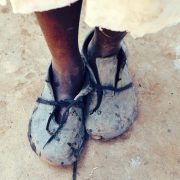HRW Report - UAE: Investigate Allegations of Torture of Foreign Nationals

UAE: Investigate Allegations of Torture of Foreign Nationals
Former Detainees Describe Abuse by State Security officers
(Beirut) – United Arab Emirates authorities should immediately investigate credible allegations that state security officers have tortured detainees and prosecute anyone responsible. The detainees include Canadian, Libyan, and United States citizens.
Human Rights Watch spoke separately with three former detainees and a family member of two current detainees, who were among or linked to a group of ten Libyan businessmen detained in the UAE in August and September 2014. The men said their interrogators asked them about their supposed links to the Muslim Brotherhood – which the UAE has designated a terrorist organization - and described a range of abuses, including beatings, forced standing, and threats to rape, kill, and electrocute. Their descriptions are consistent with previous allegations of torture at UAE state security facilities.
Six of the 10 men remain in incommunicado detention, including two Libyan-American citizens, Kamal and Mohamed Eldarat, and a Libyan-Canadian citizen, Salim Elaradi. None have received legal assistance, and it is not clear if they have been formally charged with any offence.
“There is strong evidence that the UAE maintains a facility outside Abu Dhabi city where security forces torture detainees while keeping their location secret,” said Joe Stork, deputy Middle East director. “Any confessions or so-called intelligence that comes out of that facility should be considered inadmissible and unreliable.”
The three former detainees told Human Rights Watch that state security officers blindfolded, handcuffed, and shackled them to the floor or ceiling of a customized black GMC 4×4 vehicle – the seats of which had been removed to apparently transport shackled detainees – and drove them to a detention center staffed by Nepalese guards and Emirati interrogators. They believed the facility to be close to Abu Dhabi city and said they could hear aircraft taking off and landing.
Two detainees said they were badly beaten during interrogations over more than two weeks. All three said they were blindfolded during their interrogation sessions. Detainees said their interrogators strapped them into what they were told was an electric chair, and threatened them with electrocution. One man said interrogators suspended him by his wrists and ankles from an iron bar and beat him. All three said interrogators threatened them with rape.
One of the former detainees says interrogators asked him to sign a statement that grossly misrepresented what he said during interrogation, and also falsely implicated a third-party in wrong-doing.
Mohamed Elaradi, the only one of the three willing to be identified, has a brother who is a member of the Muslim Brotherhood-affiliated Justice and Construction political party in Libya. Relatives of Kamal and Mohamed Eldarat, two of the six Libyans still being held incommunicado, said that Kamal and Mohamed are not members. In November 2014, the UAE government designated the Muslim Brotherhood a terrorist organisation.
Family members of the Eldarats told Human Rights Watch that authorities have prevented a lawyer they hired to represent their relatives from visiting the men or seeing their case files. It is not clear what charges, if any, the men are facing. The US embassy has told the family that their staff have been able to visit the men.
The UAE ratified the UN Convention Against Torture in July 2012, and is a State Party to the Vienna Convention on Consular Relations which requires that consular officers “shall have the right to visit a national of the sending State who is in prison, custody or detention.”
“In view of repeated credible allegations of torture in the UAE and authorities’ refusal to allow any legal assistance to detainees, the US, Canadian, and Libyan governments should publicly call for the release of their citizens,” Stork said. “They should also demand full accountability for these disturbing allegations of torture and other crimes committed against them.”
Details of UAE Torture Allegations
Former Detainee 1 - Mohamed Elaradi
Mohamed Elaradi, 51, a Libyan who had been officially resident in the UAE for 23 years, told Human Rights Watch that between eight and ten security officials searched his home and office in Dubai on August 28, 2014, and then blindfolded him, shackled him to the floor of a 4×4 vehicle and drove him to a detention facility. He said they placed him in a windowless cell measuring approximately 3 meters by 3 meters. “From that day on, I had no idea of time,” he said. Elaradi spent more than 100 days in detention at this facility and was subjected to multiple interrogation sessions in the initial weeks, always blindfolded throughout. He told Human Rights Watch that interrogators with Emirati accents beat him all over his body, including the soles and tops of his feet, with rubber hoses; doused him with water and subjected him to extreme cold; forced him to stand for days at a time; threatened him with rape; and strapped him into what they said was an electric chair. “You could always hear torture, there was crying and screaming the whole time,” he said, adding that on one occasion he heard his brother Salim screaming. UAE authorities released Mohamed Elaradi without charge on December 25, 2014. He said he did not see a lawyer or receive consular assistance from the Libyan embassy at any time during his detention, and was only allowed one supervised five-minute phone call to his family in November. His brother, Salim Elaradi, whom authorities arrested on the same day, is still in detention.
Former Detainee 2
The two other former detainees spoke to Human Rights Watch on condition of anonymity for security reasons. They also requested that Human Rights Watch withhold certain details of their detention in order to prevent their identification.
Detainee 2 told Human Rights Watch that more than 10 men in plainclothes detained him, then searched his house and confiscated documents and electronic equipment, before transporting him – blindfolded, handcuffed, and shackled to the ceiling of a 4×4 vehicle – to a detention facility. They did not identify themselves. He said that guards placed him in a windowless cell and subjected him to extreme light and a constant buzzing sound. “The first ten days were the worst of my life,” he said. He said that two, sometimes three, officials with Emirati accents conducted the interrogations. “They beat me with their hands, their feet, anything at all. After ten days my body was black and blue and covered in blood.” He told Human Rights Watch that they suspended him by his hands and feet from an iron bar and beat him. On one occasion, he said, they strapped him into what they said was an electric chair and threatened to electrocute him. He said they threatened to rape him and to detain his family members. He told Human Rights Watch that his interrogators questioned him about the Muslim Brotherhood, and in particular its operations in Libya. He said that during his time in detention, which lasted several months, he signed several documents, one of which was marked ‘UAE State Security.’
Former Detainee 3
Detainee 3 told Human Rights Watch that men who identified themselves as state security officials detained him in late 2014 and then transferred him – blindfolded, handcuffed, and shackled to the floor of a customised 4×4 vehicle – to a detention facility. He said he endured more than 50 interrogations over a period of several months, with most interrogations taking place in the first two weeks of his detention. He said that on at least five occasions, interrogators with Emirati accents forced him to stand overnight, blindfolded, with his hands and feet cuffed. He said his interrogators never beat him but that on two occasions they threatened to kill him, and on another occasion they threatened to send him to another group of interrogators “who have no limits and who don’t distinguish between men and women,” a statement he understood to be a threat of rape. He said his interrogators asked him to sign a statement that grossly misrepresented his relationship with and knowledge of a third-party whom it implicated in wrongdoing. He told Human Rights Watch that his interrogators’ questions were for the most part very general, and focused on his relationship with the Muslim Brotherhood.
Kamal and Mohamed Eldarat
A relative of father and son Kamal and Mohamed Eldarat, both of whom have dual US and Libyan citizenship, told Human Rights Watch that approximately 15 individuals who identified themselves as state security searched their house in Dubai on August 26, 2014, and confiscated documents and electronic equipment. The relative said a female officer told the family that they would never see Kamal again as officers took him away in a 4×4 vehicle. Kamal’s son, Mohamed, informed the Libyan and US embassies of his father’s detention, but was himself detained two days later, on August 28, by the same group of officers. The family did not hear from either man until November 11, when Kamal called and told them only that he was fine. The family has hired a local lawyer, who has been unable to gain access to either Kamal or Mohamed, whose detention location remains undisclosed by authorities. The relative said the US embassy told the family that it cannot call for the men’s release. On two occasions, a family member was able to visit the men. A relative visited Kamal and Mohamed in February and again in August 2015 at the office of the state prosecutor in Abu Dhabi. The relative said that the men were able to communicate to the family that they had been tortured into confessing membership of the Muslim Brotherhood and have suffered “black days.” Kamal Eldarat, who had pre-existing spinal problems, is walking with a severe stoop and has lost his hair and a significant amount of weight, the relative said. Former Detainee 3 told Human Rights Watch that during his time in detention he heard and recognized the voices of Kamal and Mohamed Eldarat, whom he knows, screaming in pain.
Previous Allegations of Torture at State Security Facilities
In April 2012, UAE authorities detained UAE national Ahmed al-Suweidi for five months without charge at an undisclosed location and denied him access to a lawyer. His confession was a central part of the prosecution’s case in the June 2013 conviction of another 68 men on charges that they attempted to overthrow the UAE government. Al-Suweidi revoked his confession and denied the allegations in court, and at least 22 of the 94 people tried in that case alleged that they were tortured in pretrial detention at state security facilities.
In January 2014, 20 Egyptians and 10 Emiratis were sentenced to between 3 months and 5 years in prison on charges that included running a branch of the Muslim Brotherhood in the UAE. They also alleged that UAE state security officers tortured them and denied them access to legal assistance for many months.




